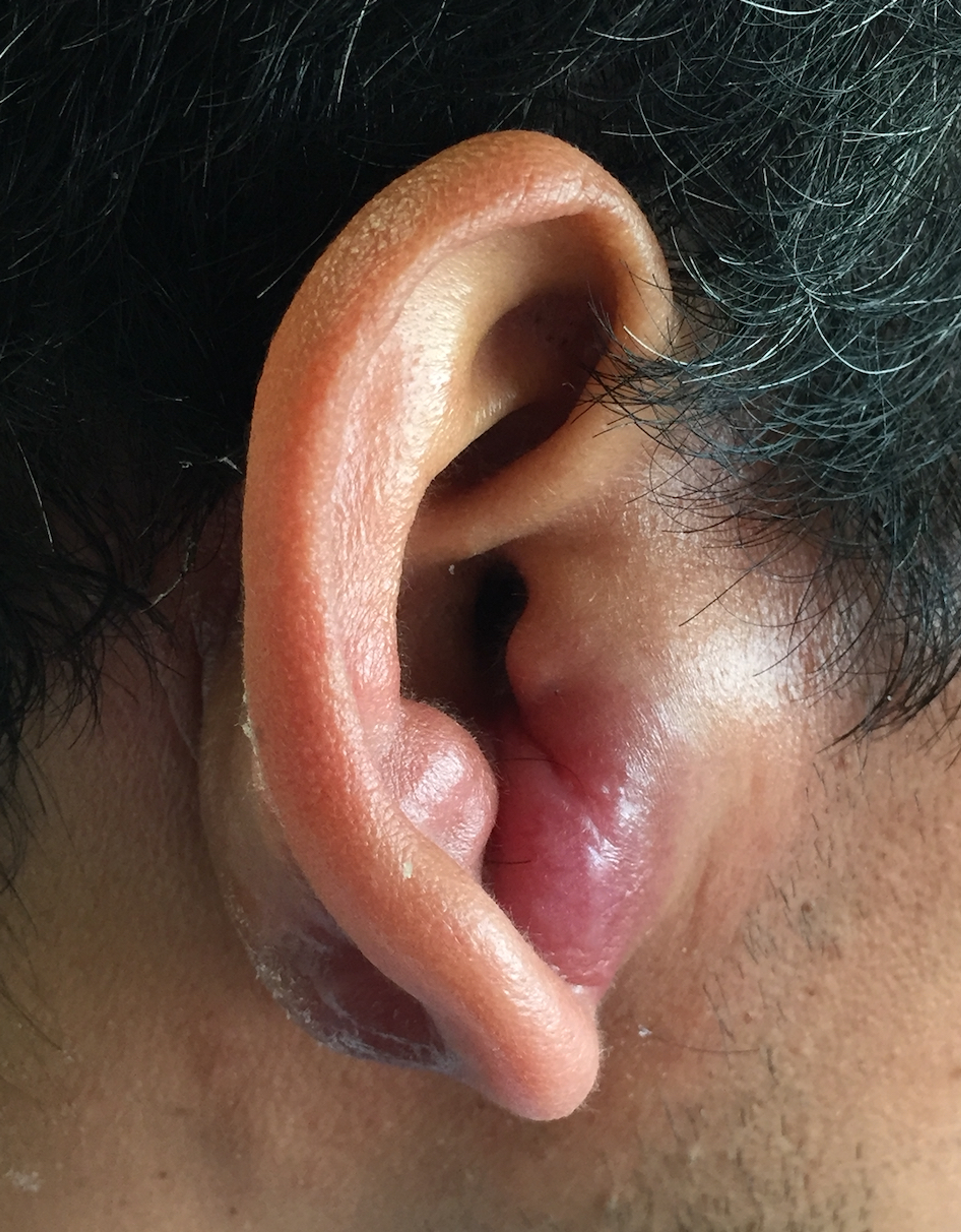You can rupture your eardrum

(Image/ Source: reddit.com)
If you hold in a sneeze, you might end up rupturing your eardrum – and it’s REALLY painful. Pressure tends to build in your respiratory system before a sneeze, which sends some air into your ears. This pressurized air runs into a tube in each of your ears that connects to the middle ear and eardrum, and it can cause your eardrum (or both of them) to rupture.
Broken ribs

(Image/ Source: reddit.com)
In extreme cases, holding a sneeze can result in broken ribs. This tends to happen in older adults who have bones that aren’t as strong. As high pressure builds when a sneeze is brewing, it can end up forcing its way into the lungs; and this pressure can cause serious damage. So make sure you sneeze properly!
Throat damage

(Image/ Source: businessinsider.com)
Doctors have found at least one case of a person actually rupturing the back of their throat by holding in a sneeze. Scary stuff. Apparently the 34-year-old man who had this injury was reported to have been in an extreme amount of pain, and he was barely able to speak or swallow after he felt a popping sensation in his neck.
It can affect your heart rate

(Image/ Source: reddit.com)
It’s been said that your heart skips a beat if you hold in a sneeze, and there’s a level of truth in that. It can temporarily affect the rate of your heart, so it can go faster or slower, but it should even itself out in a short space of time. And before you ask – no, holding in a sneeze will NOT give you a heart attack, despite what the internet says.
You can damage blood vessels in your eyes

(Image/ Source: reddit.com)
It’s a pretty rare outcome, but holding in a sneeze instead of naturally letting it out can rupture the blood vessels in your eyes, giving them an unsightly bloodshot look. But they won’t be like this forever; your body just needs to repair itself. Still, it’s best to avoid injury, even if it’s a superficial one!
Middle ear infection

(Image/ Source: reddit.com)
Sneezing helps clear your nose of things that shouldn’t be there, including irritants like pollen and dust. This also includes bacteria. Hypothetically, the redirection of air back into your ears from your nasal passages could carry bacteria or infected mucus to your middle ear – which has the potential to cause an infection.
Diaphragm injury

(Image/ Source: ramseyvoice.com)
You’ll find your diaphragm above your abdomen. It’s the muscular part of your chest which helps you breathe. In some rare instances, people can cause damage to their diaphragm when they hold in a sneeze, as pressurized air can get trapped there. This can cause the lungs to collapse. If you get a diaphragm injury, you’ll need immediate medical attention as it’s potentially life-threatening.
You can get nose bleeds

(Image/ Source: Reddit.com)
If you hold in a sneeze, you won’t be surprised to hear that you might end up with a nosebleed. When we hold our sneezes in, it can cause the blood vessels in our nose to weaken and burst, resulting in an unpleasant nosebleed. While it’s nothing to worry too much about, it’s still something you should try and avoid.
Aneurysm

(Image/ Source: reddit.com)
In worst-case scenarios, scientists say the pressure caused by holding in a sneeze can potentially lead to the rupturing of a brain aneurysm. To make it clear – this is a life-threatening injury that can lead to bleeding in the skull around the brain. While cases are pretty rare, it’s still important to bear in mind.
You can damage blood vessels in your eardrums

(Image/ Source: cureus.com)
We’ve covered blood vessels in your eyes and ears, but did you know you can end up with burst blood vessels in your eardrums too? The increased pressure caused by the sneeze being held in can cause blood vessels to squeeze and burst, making them bleed. It’s important to get medical attention for this, as the blood can then end up causing an infection in your ear.
It can make your chest hurt

(Image/ Source: reddit.com)
Withholding a sneeze has the potential to cause a few uncomfortable sensations for your body. Many people find that they get chest pain when they hold in a sneeze, or experience a strange sense of fullness in their chest and rib area. It’s not super dangerous, but it’s not a pleasant sensation by any means!
You can get a headache

(Image/ Source: reddit.com)
One common side effect of holding a sneeze in is a headache. This is because it increases noticeable pressure in your head – about 5 to 24 times of that during a normal sneeze. Unsurprisingly, this can feel pretty uncomfortable, but the pain should subside after a while. If your headache persists, be sure to speak to a doctor.
You can have a pseudomediastinum

(Image/ Source: 13wham.com)
We don’t want to bombard you with science, but if you hold in a sneeze, you might potentially experience a pseudomediastinum. This is what happens when air gets trapped between your lungs, which can cause major problems. If you suspect this might have happened after you’ve held in a sneeze, seek medical attention as quick as you can.
Throat irritation

(Image/ Source: reddit.com)
While ruptures in your throat are rare, throat irritation from holding in a sneeze is MUCH more common. You might experience a tickling sensation in your throat, or it can feel sore after the pressurized air has gone into it. Your throat should usually get better on its own though, so it’s nothing to be super concerned about.
You can get sinus problems

(Image/ Source: alliance-mri.com)
If you’re holding in all the things your nose is trying to get rid of like bacteria, infected mucus and things that shouldn’t be in there, such as dust, then this is going to cause problems for your sinuses. They may start to get blocked, and even get infected over time. It can also cause increased pressure in your sinuses too.
You can get popping and crackling sounds in your ears

(Image/ Source: reddit.com)
For people who are guilty of holding in their sneezes on a regular basis, you might find you have a LOT of popping and crackling sounds going on in your ears. Wondering what is it exactly? It’s trapped air, which gets stuck in your ears when you don’t let a sneeze out. They end up forming little air bubbles over time.
You can get air bubbles in your deep tissue

(Image/ Source: science.org)
If air bubbles in your ears weren’t bad enough, then air bubbles in your tissue are a whole lot worse. The man who ruptured his throat from holding in a sneeze also had popping and crackling sounds all the way from his neck to his ribcage, meaning the air bubbles had reached the deep tissues and muscles of the chest. Dangerous stuff.
You hold germs in your body

(Image/ Source: cornwalllive.com)
You might think that it’s more hygienic to hold in a sneeze – and it might be seen as being more polite too! But a word of warning - keeping those sneezes in means that your ears, nose and throat can become a huge breeding ground for those germs you’re body’s trying to get rid of, which isn’t exactly hygienic.
And this can make you sick

(Image/ Source: reddit.com)
It’ll come as no surprise to hear that all these extra germs can end up making you sick. Things like bacteria, dust, dirt, pollen and infected mucus can build up in our ears, nose and throat, which means you increase the likelihood of experiencing things like a cold or flu. So remember – better out than in!
It can make your ears hurt

(Image/ Source: reddit.com)
If your ears are going through so much potential trauma from holding in a sneeze, then guess what- they’re probably going to hurt after a while. With air bubbles, pressure and potential ruptures all on the cards, you might start experiencing some pain, so be sure to visit your doctor if you have any concerns.
You can get pain in your ribs

(Image/ Source: reddit.com)
While you might not end up breaking your ribs, you can still experience some serious pain in your ribs if you keep holding in sneezes. The pressure from holding a sneeze in can shoot down to your lungs, chest and rib area, causing a sharp pain as it does so. While elderly people are more prone to it, it can still affect young people too.
Face ache

(Image/ Source: yahoo.com)
This might not be the most dangerous thing in the world, but it can cause a lot of misery to people who experience facial aching on a regular basis. With all this pressure whizzing around in your head, you can find that you end up with an achy face after holding in a sneeze – especially around your sinus area.
It can make your eyes hurt

(Image/ Source: reddit.com)
This is a similar situation to your ears. The more your eyes are experiencing pressure, and the more likely they are to go through multiple blood vessel bursts, the more sensitive they will become. This means you may experience pain or soreness in the eyes each time you hold in another sneeze. You’ve been warned!
Your eustachian tubes can get blocked

(Image/ Source: reddit.com)
Holding in a sneeze means the eustachian tubes in your ears can get blocked. Eustachian tube dysfunction is a condition where the tubes that connect your middle ears to your upper throat can’t open and close properly, which can lead to a lot of discomfort and pain. While this can resolve itself in a few days, it’s really important to speak to your doctor if it persists.
Which can make your ears feel full

(Image/ Source: reddit.com)
The more your eustachian tubes get blocked, the more you may experience a strange feeling of fullness in your ears thanks to increased pressure. The air that should be let out during a sneeze stays in your body, which means you can get little air bubbles trapped in your ears. And it isn’t all that comfortable.
It can potentially lead to hearing loss

(Image/ Source: reddit.com)
In some extreme cases, people who suffer from blocked eustachian tubes start to experience hearing loss. Sounds may become muffled, or much quieter than they used to be. If this is the case for you, be sure to check in with your doctor asap, as you might require medication or surgery to get this sorted out.
It can make your eyes water

(Image/ Source: aeceyecare.com)
As we’ve already covered, your eyes might end up experiencing some pain if you’re holding in those sneezes on a regular basis. As your eyes become more sensitive, they may end up becoming more watery. This can get worse if you often have dry eyes from working on screens a lot (or scrolling on your phone).
Tinnitus

(Image/ Source: army.mill)
If you’re holding your sneezes in on a regular basis, it’s going to take its toll on your ears after a while. All this additional pressure in your ears not only plays havoc with your eustachian tubes, but it can also cause tinnitus too. For those who haven’t experienced it before, it’s a constant ringing, buzzing or humming sound in your ears, which can cause a LOT of irritation.
Damaged muscles

(Image/ Source: reddit.com)
While the chances of this happening are pretty rare, it’s important to note that holding in sneezes can actually cause damage to your muscles if you’re not careful. The pressure you hold in has to go somewhere, which can not only cause dangerous ruptures in your body, but painful tears in your muscles too.
Slipped discs

(Image/ Source: reddit.com)
It’s not just muscle tears you can end up experiencing – it’s slipped discs too. Scientists estimate that the speed of a sneeze is about 650 mph (roughly 85 percent of the speed of sound), so it’s no big surprise that this kind of rocket propulsion has caused major disc problems for people in extreme cases!
Pulled ligaments

(Image/ Source: reddit.com)
Some people who have held in sneezes have ended up with torn ligaments in their backs or sides, which can be super painful. It can take a while for them to heal too. It’s therefore a much better idea to naturally let your sneezes out; just sneeze into your elbow to make sure you’re not spreading germs to other people.






























